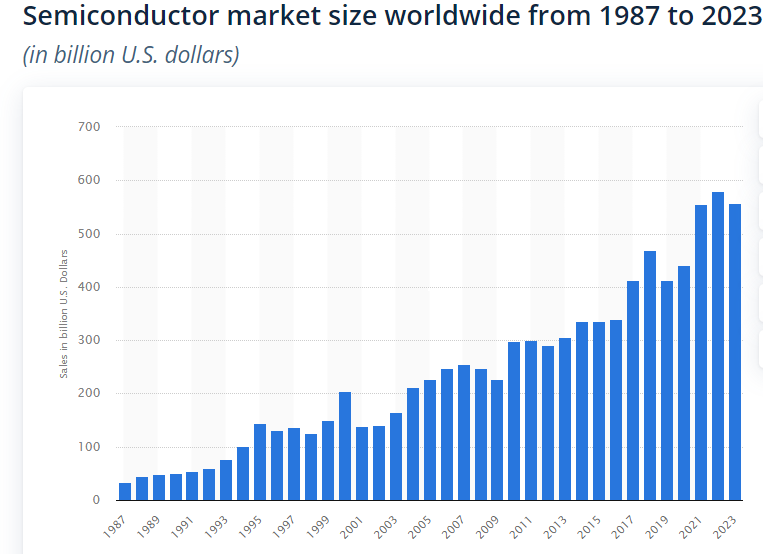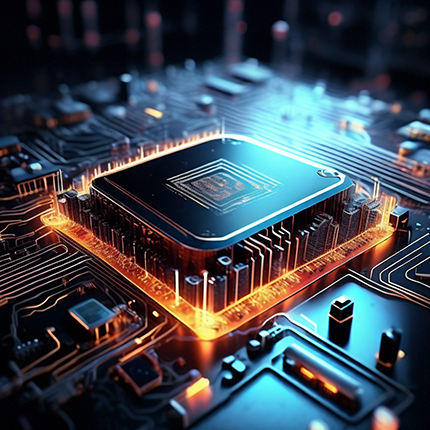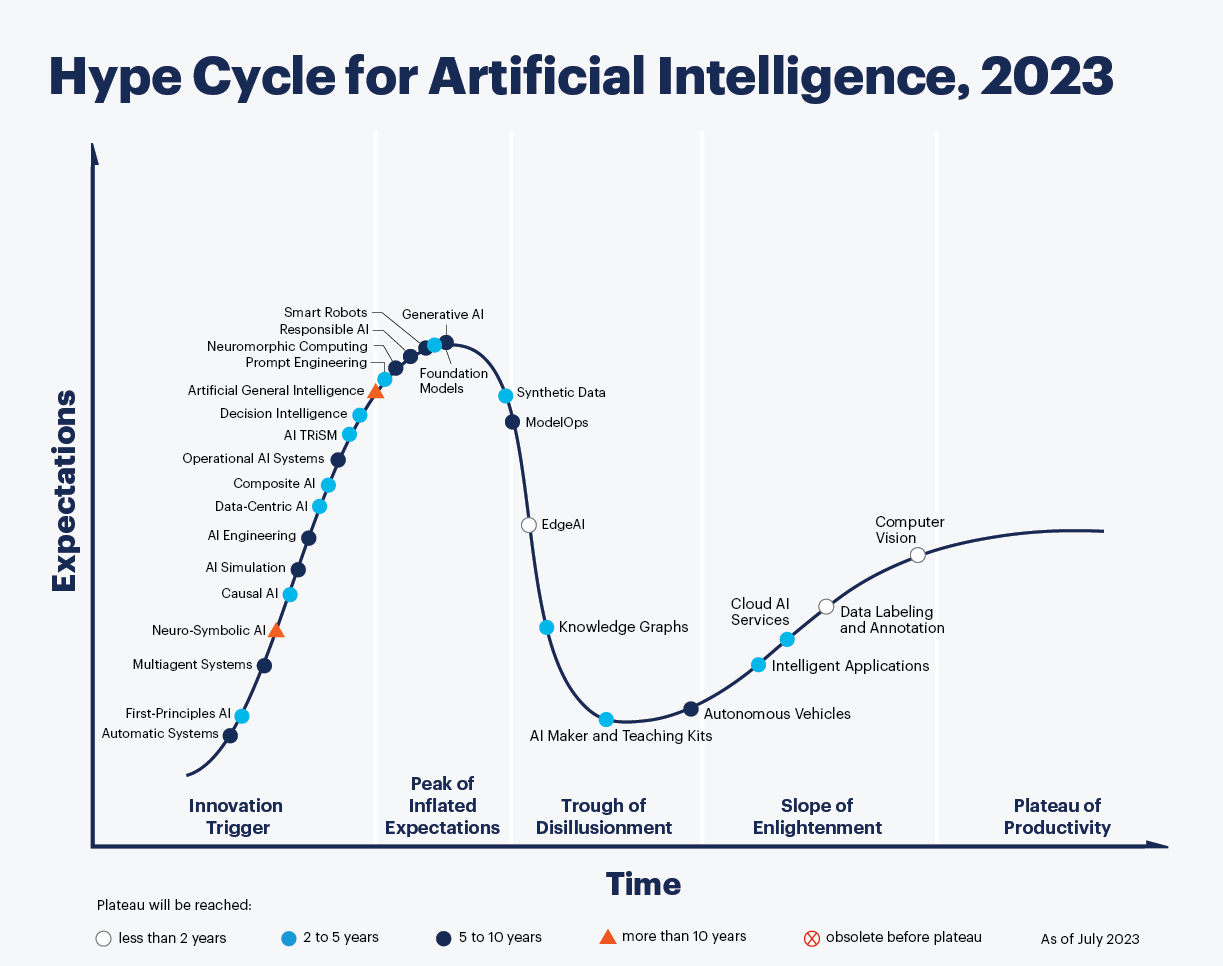In today's fast-paced technological landscape, the term "semiconductor" has become synonymous with innovation and progress. These tiny chips play a pivotal role in almost every electronic device we encounter daily. As you can see from the below pictures of the semiconductor market size changed from 1978 - 2023.

Credit from statista.com
What Are Semiconductors?
SSemiconductor refers to a material whose electrical conductivity at room temperature is between that of a conductor and an insulator. Semiconductors are used in integrated circuits, consumer electronics, communication systems, photovoltaic power generation, lighting, high-power power conversion and other fields. For example, diodes are devices made of semiconductors. Whether from the perspective of technology or economic development, the importance of semiconductors is huge. The core units of most electronic products, such as computers, mobile phones or digital recorders, are closely related to semiconductors. Common semiconductor materials include silicon, germanium, gallium arsenide, etc. Silicon is the most influential one among various semiconductor material applications.

The Semiconductor Market Landscape
The semiconductor market is vast and multifaceted, with several key factors influencing its dynamics:
1. Market Size and Growth
The semiconductor market has witnessed consistent growth over the years, driven by increased demand for electronic devices, such as smartphones, laptops, and IoT devices. The COVID-19 pandemic further accelerated this growth as remote work and online activities surged.
2. Key Players
Major semiconductor companies like Intel, AMD, Qualcomm, and NVIDIA dominate the market. However, new entrants and niche players continually emerge, fostering competition and innovation.
3. Technological Advancements
The semiconductor industry is characterized by rapid technological advancements. Shrinking transistor sizes, improved energy efficiency, and enhanced performance are constant goals, driving investments in research and development.
4. Supply Chain Challenges
The semiconductor market has faced supply chain disruptions, partly due to geopolitical tensions and natural disasters. These disruptions have led to increased prices and delays in product availability.
5. Emerging Markets
The rise of emerging technologies like 5G, artificial intelligence (AI), and autonomous vehicles has created new opportunities for semiconductor companies. These markets are expected to fuel future growth.

Credit from Gartner
Frequently Asked Questions (FAQs)
Q1: What are the primary applications of semiconductors?
A1: Semiconductors are used in a wide range of applications, including smartphones, computers, automotive electronics, medical devices, and industrial automation.
Q2: Why are semiconductors so crucial to the technology industry?
A2: Semiconductors serve as the foundation for electronic devices, enabling data processing, memory storage, and connectivity. Without them, modern technology as we know it would not exist.
Q3: How are semiconductor companies addressing environmental concerns?
A3: Many semiconductor companies are investing in sustainable practices and technologies to reduce their environmental impact. This includes improving energy efficiency in manufacturing processes and recycling materials.
Q4: What challenges does the semiconductor industry face in ensuring a stable supply chain?
A4: The semiconductor industry faces challenges related to geopolitical tensions, natural disasters, and the complexity of global supply chains. These factors can disrupt production and lead to shortages.
Q5: What trends can we expect in the semiconductor market in the coming years?
A5: We can anticipate continued innovation, with a focus on smaller, more energy-efficient chips, increased integration of AI, and growth in markets like electric vehicles and 5G infrastructure.
The semiconductor market is a dynamic and essential industry that underpins much of our modern world. As technology continues to advance, so too will the semiconductor industry, ensuring that we have the processing power and connectivity needed to fuel innovation across various sectors. Understanding the intricacies of this market is crucial for anyone interested in the ever-evolving world of technology.




 Need Help?
Need Help?







